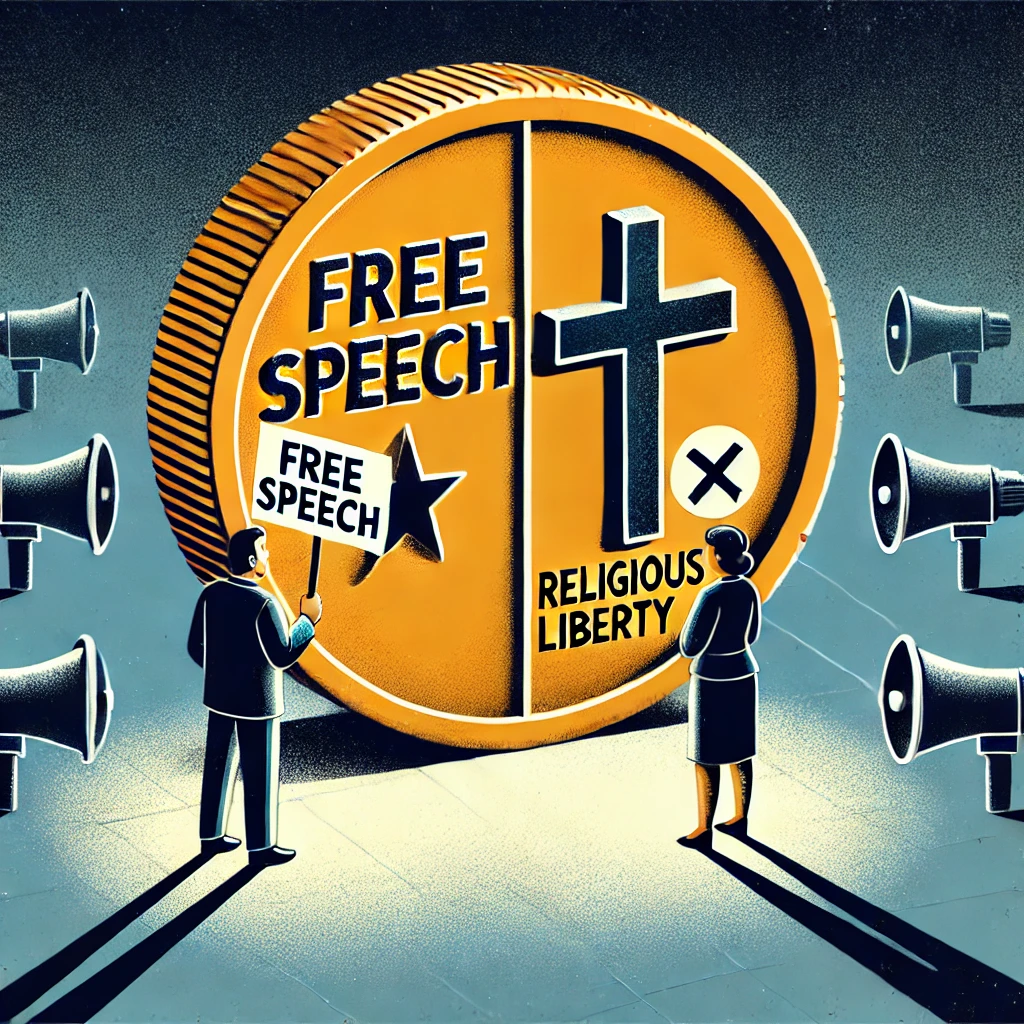[dc]F[/dc]ree speech and religious liberty are deeply connected. In fact, you can’t have true religious freedom without free speech. The ability to express one’s beliefs openly, to question or challenge ideas, and to share one’s faith is essential to practicing religion. But in today’s world, free speech is under threat, not just by governments but also by social media companies, which sometimes censor certain viewpoints. When speech is limited, especially when it comes to religious ideas, religious liberty is at risk.
The First Amendment to the U.S. Constitution protects both free speech and the free exercise of religion. It ensures that individuals can speak openly about their beliefs and practice their faith without government interference. Whether someone wants to share their religious views with friends, write a blog post, or lead a congregation, they have the right to do so. This freedom fosters religious diversity and allows people to live according to their conscience.
However, there have been attempts to limit this freedom, even in the United States. For instance, social media platforms like Facebook, Twitter, and YouTube have been criticized for removing or limiting content that they deem controversial. While these companies are private businesses and can set their own rules, their decisions often have real consequences for religious expression. In some cases, posts discussing certain religious beliefs or defending traditional views on issues like marriage or morality have been removed or restricted. This type of censorship, even if not directly from the government, can have a chilling effect on free speech and religious liberty.
Consider the example of a Christian group that posted Bible verses on social media platforms, only to find their posts flagged or removed for violating “community guidelines.” While the companies claim to be fighting hate speech, these actions can sometimes cross the line into censoring legitimate religious expression. When voices are silenced, particularly when they’re expressing deeply held beliefs, it creates an atmosphere where only certain views are allowed to be heard.
History also shows us how dangerous censorship can be. In the past, governments have used censorship to suppress religious minorities. For example, during the early 20th century, Jehovah’s Witnesses faced bans on their literature and speech because their beliefs were seen as controversial. These efforts to limit their free speech were also attacks on their religious freedom.
The lesson here is clear: if we allow free speech to be restricted–whether by the government or private companies–religious liberty will also suffer. When people are afraid to speak openly about their beliefs, it becomes harder for them to practice their religion freely. Everyone, no matter their faith, should have the right to express their views without fear of being censored.
In the United States, protecting both free speech and religious liberty is essential for a healthy, diverse society. Censorship, especially when it limits religious expression, threatens the very core of these freedoms. If we are to uphold the principles of a free society, we must ensure that everyone has the right to speak and practice their faith without interference.
